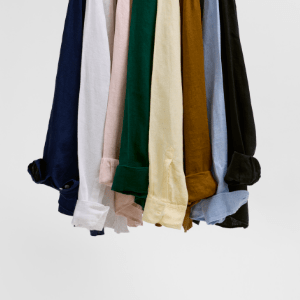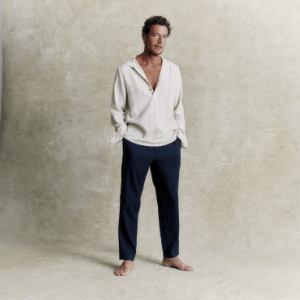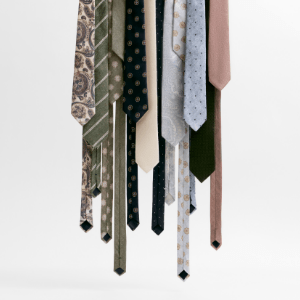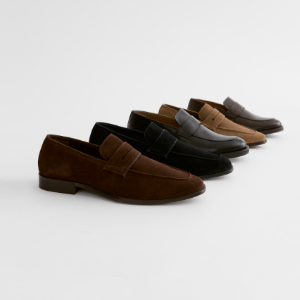
Your guide to dress shirts
There's more to black tie than the tux.
When it comes to black tie, a simple button down just won’t do; it’s time to wear a dress shirt. A formal version of the white suit shirt, it’s an essential part of the black-tie dress code and has a range of features that differentiates it from other regular shirts.
From the cuffs, to the placket, to the collar, here’s what you need to know about dress shirts.

From underwear to formalwear
There was a time when our most formal shirts were just seen as underwear, designed to keep waistcoats clean. It wasn’t until the nineteenth century that stiff high collars and immaculate white cloths became a status symbol.
We have British fashion pioneers like Beau Brummel to thank for the stiff-collar shirt’s rise in the ranks. Only wealthy people could follow their lead, as you needed a decent amount of money to keep washing your white shirt.
There’s still a whiff of high-society about them today. Pristine white dress shirts are often reserved for formal events, those nights when you want to go all out like a wedding or an awards show.
But what’s the difference between a dress shirt and an Oxford shirt? There are three things to know, and it comes down to the collar, the cuffs and the placket.

The collar
You have two collar options for dress shirts. There’s the wing which is very classic 1880s, and the turned-down collar, reminiscent of the Duke of Windsor circa 1920s.
Also sometimes called wingtip, the wing collar is the most formal dress shirt. This collar stands up stiffly with small points pressed to stick out, and if you’re sticking to the rules you tuck these pointed wings behind your bow tie.
Turned-down collars are more like the ones on your smart business shirt. You’ll need one of these if you want to wear a normal tie, or no tie at all. It’s also best to tuck your shirt in to maintain formality across your look.
There was a time when the collar was separate from the shirt. Washing machines weren’t invented at the time, so an ingenious New Yorker found a way to detach the collar to wash it more often. Thankfully we’ve moved on since then, but you should give the collar a good iron to help it keep its shape.

The cuff
Dress shirts always have double cuffs (sometimes called French cuffs), which are designed to fold back on themselves and be secured with cufflinks. It’s easiest to keep your cufflinks simple like small studs in black or mother of pearl. Black tie is traditionally upmarket, not ostentatious – but where’s the fun in that? A cufflink is a chance to show some personality. Analyse the formality of the party and if you think you can pull off a novelty cufflink, go for it.

The placket
Your placket is the strip of fabric down the centre of your shirt that your buttons are sewn onto. On dress shirts, your placket will either conceal your buttons or host stud buttons.
For concealed buttons, there’s an extra layer of material to hide them which creates a clean finish. Stud buttons are small disks, usually in black, that look polished and add a little contrast to your shirt.

The bib
There was a time in the 70s when dress shirts had elaborate ruffles down the front – and they give a retro feel now if that’s what you’re after – but today most dress shirts come in smooth, plain cotton that looks minimal and clean. Some have pleats down the front (you can thank the Duke of Windsor for those), which add personality without going as far as out-there ruffles.
How to style your men's dress shirt
Think about the rest of your outfit – if you’re wearing a classic black tux you can definitely pull off a little texture, but if you’re wearing a colourful velvet dinner jacket, you might do better to keep your shirt streamlined.
Either way, you’ll want a bow tie. You can go classic black and neatly proportioned, or you can go oversized and floppy. As for the trims like your cufflinks, studs and watch, the rule of thumb is to keep your metals in the same colour (silver with silver, gold with gold). But this isn’t essential, so feel free to let your creativity shine through if it’s that kind of party.
How to measure for a dress shirt
You can work out your dress shirt size from the collar. The sizing is in inches, so you’ll need to dig out your tape measure to work out which size is right for your neck.








